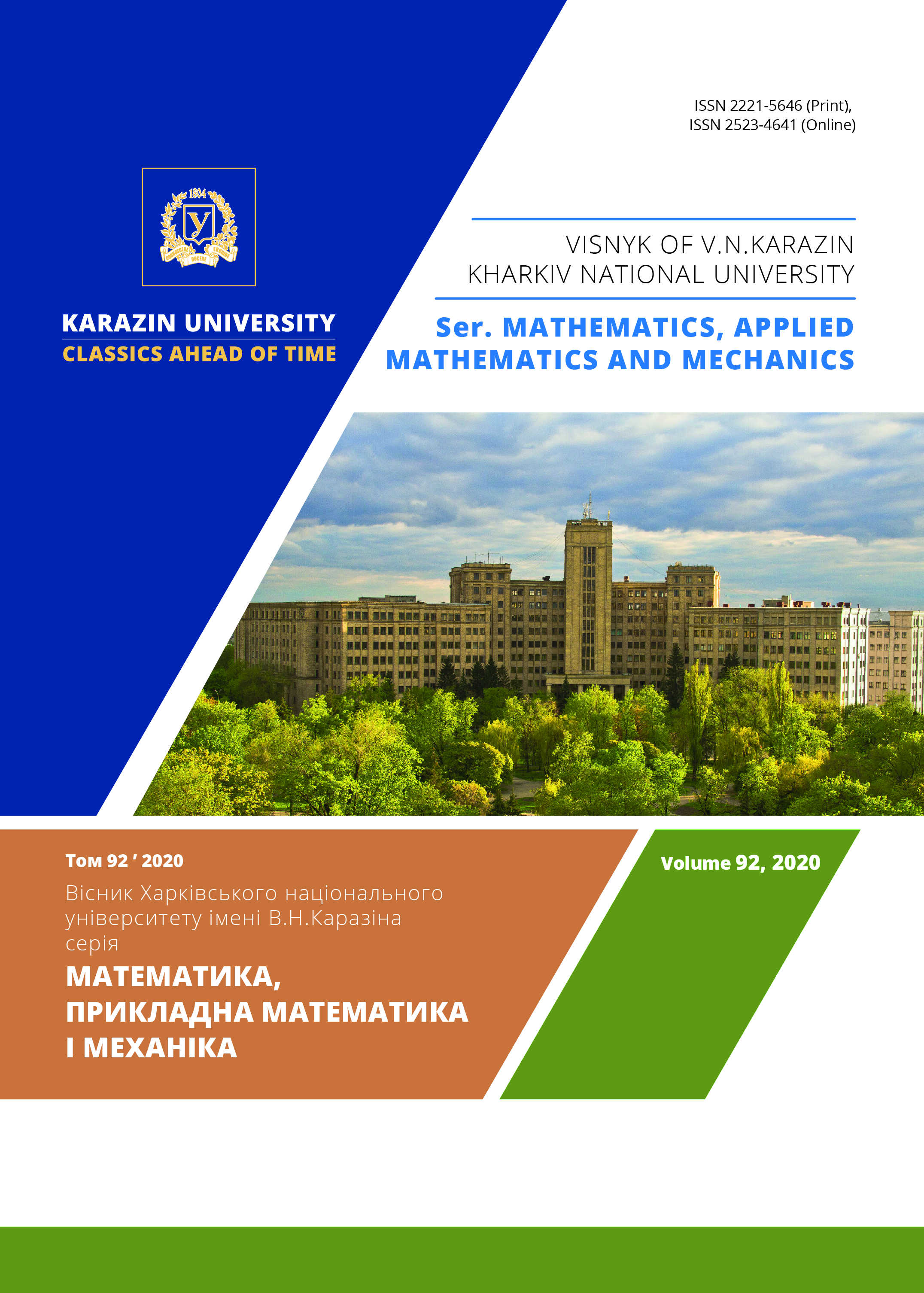One numerical approach to optimal control the linear heat conduction processes
Abstract
It is proposed the generalized mathematical formulation of the problem about the optimal control for the heat conduction processes representing by the partial differential equation. The proposed formulation not includes the necessary clarifications about the conditions which must be satisfied by the current and required temperature fields. But, during the generalized solving of the formulated problem, it is established that the current and required temperature fields must be agreed with the mathematical model of the heat conduction so that to have possibilities to provide uniquely these temperature fields by means the control vector. To solve the problem about the optimal control for the heat conduction processes it is developed the numerical approaches based on reducing to the especially built ordinary differential equations and
minimization problem. This reducing is based on discretisation the heat conduction by using the grid method and on defining the unknown control vector as the numerical solution of the especially built Cauchy problem. To satisfy the all limitations it is proposed to build the permissible velocity of the unknown control vector considering with the requirements of necessary switching in some moments of the time. The particular example of using the proposed generalized approaches is considered to illustrate their application technique. It is shown that the proposed generalized mathematical formulation is fully corresponded with the considered particular example. In this considered particular example, the resolving Cauchy problem can be built and the switching time can be found in the depending on the grid node choosing. It is shown that the transient time can be decrease almost twice due to optimizing the control in the particular example at least. All these results will allow giving the clear representation of the proposed approaches and the technique of their using to solve the engineering problems about the optimal control of the heat conduction processes in different industrial systems.
Downloads
References
M. Hultgren, E. Ikonen, J. Kovacs, Integrated control and process design in CFB boiler design and control - application possibilities, IFAC-PapersOnLine. – 2017. – 50, 1. – P. 1997–2004. https://doi.org/10.1016/j.ifacol.2017.08.180
R. Seeber, M. Golles, N. Dourdoumas, M. Horn, Reference shaping for modelbased control of biomass grate boilers, Control Engineering Practice. – 2019. – 82. – P. 173–184. https://doi.org/10.1016/j.conengprac.2018.10.006
I. Cabeza-Gil, B. Calvo, J. Grasa, C. Franco, S. Llorente, M.A. Martinez, Thermal analysis of a cooking pan with a power control induction system, Applied Thermal Engineering. – 2020. – 180. – 115789. https://doi.org/10.1016/j.applthermaleng.2020.115789
M. Pondini, A. Signorini, V. Colla, S. Barsali, Analysis of a simplified Steam Turbine governor model for power system stability studies, Energy Procedia. – 2019. – 158. – P. 2928–2933. https://doi.org/10.1016/j.egypro.2019.01.953
K. Kalimeris, T. Ozsari, An elementary proof of the lack of null controllability for the heat equation on the half line, Applied Mathematics Letters. – 2020. – 104. – 106241. https://doi.org/10.1016/j.aml.2020.106241
C. Letrouit, From internal to pointwise control for the 1D heat equation and minimal control time, Systems & Control Letters. – 2019. – 133. – 104549. https://doi.org/10.1016/j.sysconle.2019.104549
L. Berrahmoune, A variational approach to constrained null controllability for the heat equation, European Journal of Control. – 2020. – 52. – P. 42–48. https://doi.org/10.1016/j.ejcon.2019.09.006
C. Laurent, L. Rosier, Exact controllability of semilinear heat equations in spaces of analytic functions, Annales de l’Institut Henri Poincare C, Analyse non lineaire. – 2020. – 37,4. – P. 1047–1073. https://doi.org/10.1016/j.anihpc.2020.03.001
A. Schaum, T. Meurer, Dissipativity-based output-feedback control for a class of semilinear unstable heat equations, IFAC-PapersOnLine. – 2019. – 52,16. – P. 316–321. https://doi.org/10.1016/j.ifacol.2019.11.798
P. Lissy, The cost of the control in the case of a minimal time of control: The example of the one-dimensional heat equation, Journal of Mathematical Analysis and Applications. – 2017. – 541,1. – P. 497–507. https://doi.org/10.1016/j.jmaa.2017.01.096
V. I. Korobov, Time Optimality for Systems with Multidimensional Control and Vector Moment Min-Problem, Journal of Dynamical and Control Systems. – 2020. – 26. – P. 525–550. https://doi.org/10.1007/s10883-019-09465-2
I. Sh. Nevliudov, Yu. V. Romashov, The semi-discretisation method for optimizing the program control of distributed parameters systems, Bulletin of Zaporizhzhia National University. Physical and Mathematical Sciences. – 2020. – 1. – P. 64-71. https://doi.org/10.26661/2413-6549-2020-1-08 (in Ukrainian).
Copyright (c) 2020 Igor Nevliudov, Yurii Romashov

This work is licensed under a Creative Commons Attribution-NonCommercial-NoDerivatives 4.0 International License.
The copyright holder is the author.
Authors who publish with this journal agree to the following terms:
1. Authors retain copyright and grant the journal right of first publication with the work simultaneously licensed under a Creative Commons Attribution License that allows others to share the work with an acknowledgement of the work's authorship and initial publication in this journal. (Attribution-Noncommercial-No Derivative Works licence).
2. Authors are able to enter into separate, additional contractual arrangements for the non-exclusive distribution of the journal's published version of the work (e.g., post it to an institutional repository or publish it in a book), with an acknowledgement of its initial publication in this journal.
3. Authors are permitted and encouraged to post their work online (e.g., in institutional repositories or on their website) prior to and during the submission process, as it can lead to productive exchanges, as well as earlier and greater citation of published work (see The Effect of Open Access).




